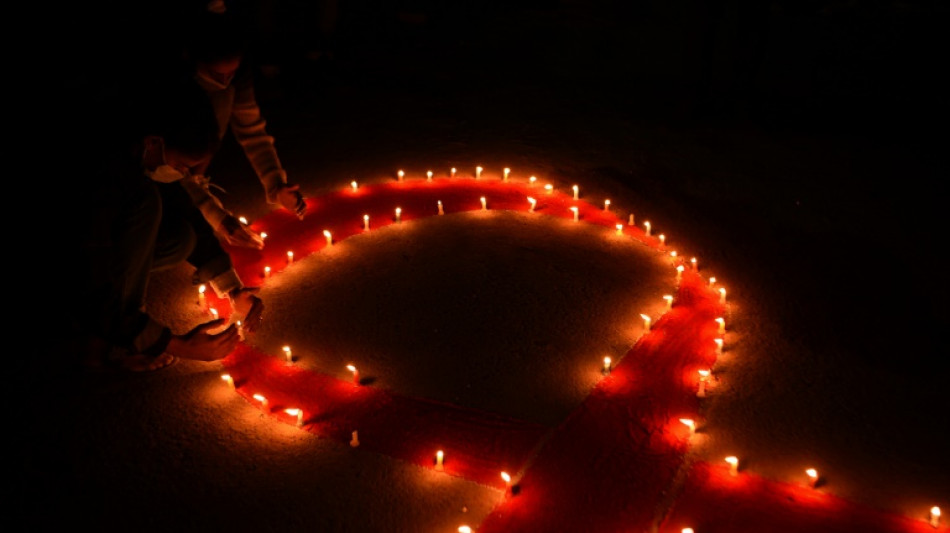
-
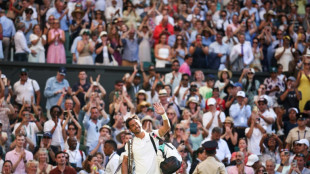 'Hothead' Fognini announces retirement from tennis
'Hothead' Fognini announces retirement from tennis
-
Werner unveiled as first new Leipzig coach in Klopp era

-
 Zelensky talks peace with pope ahead of Ukraine recovery conference
Zelensky talks peace with pope ahead of Ukraine recovery conference
-
Musk's chatbot Grok slammed for praising Hitler, dishing insults

-
 Another Lions injury worry after fullback Kinghorn limps off
Another Lions injury worry after fullback Kinghorn limps off
-
Rider quits Tour de France after cycling 174km with fractured shoulder
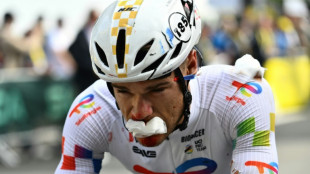
-
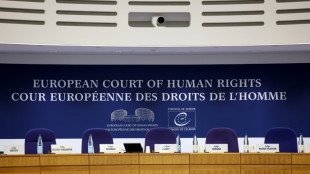 Top European rights court finds Russia committed abuses in Ukraine
Top European rights court finds Russia committed abuses in Ukraine
-
Inspired Queensland upset NSW to snatch State of Origin crown

-
 Lions tame gutsy Brumbies for fourth straight win on Australia tour
Lions tame gutsy Brumbies for fourth straight win on Australia tour
-
Red Bull sack F1 team chief Horner
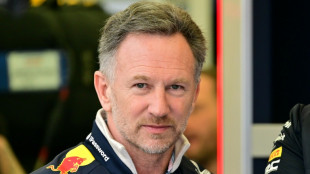
-
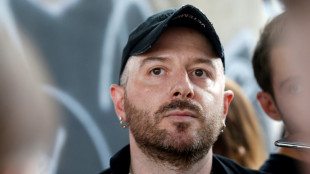 Demna bows out at Balenciaga with star-studded Paris catwalk show
Demna bows out at Balenciaga with star-studded Paris catwalk show
-
Lions tame gutsy Brumbies to make it four straight wins

-
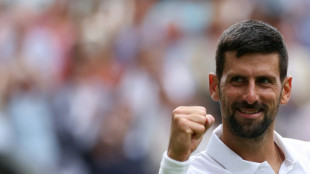 Djokovic eyes Wimbledon history, wounded Sinner in spotlight
Djokovic eyes Wimbledon history, wounded Sinner in spotlight
-
European stocks brush off Trump's copper, pharma tariff threats
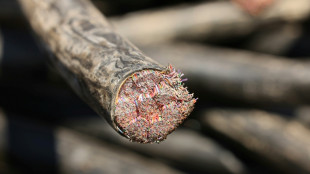
-
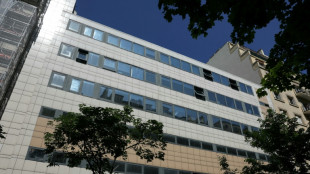 France police raid far-right party offices over campaign financing
France police raid far-right party offices over campaign financing
-
Commerzbank commits to strategy as UniCredit ups direct stake

-
 Deadly temperatures blasted western Europe in record hot June
Deadly temperatures blasted western Europe in record hot June
-
Volkswagen US deliveries fall as Trump tariffs bite

-
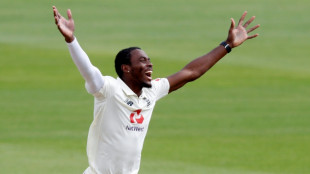 England recall Archer after injury exile for third Test against India
England recall Archer after injury exile for third Test against India
-
Red Bull sack team chief Horner after two decades in charge
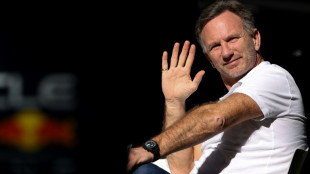
-
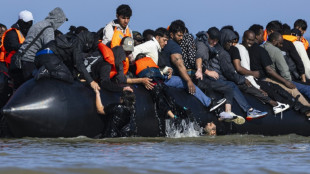 Macron turns to politics on second day of UK state visit
Macron turns to politics on second day of UK state visit
-
Ukraine says Russia launched largest drone, missile attack of war
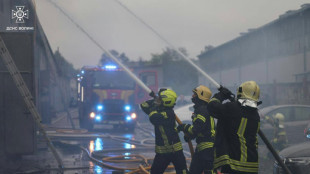
-
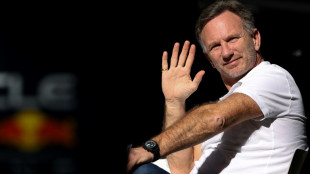 Red Bull sack team chief Horner afer two decades in charge
Red Bull sack team chief Horner afer two decades in charge
-
Toll of Air India disaster rests at 260 as focus turns to crash report
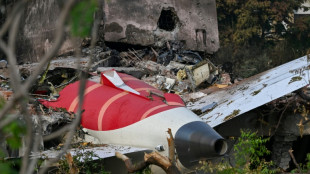
-
 Iraq's Kurdistan enjoys all-day state electricity
Iraq's Kurdistan enjoys all-day state electricity
-
Israel, Hamas defiant as US presses for ceasefire

-
 Lidl owes French rival $50 mn after ads ruled deceptive
Lidl owes French rival $50 mn after ads ruled deceptive
-
Spain PM announces anti-graft plan as scandal rocks govt
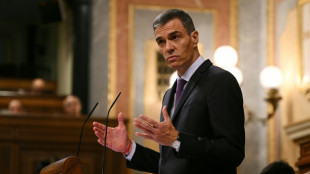
-
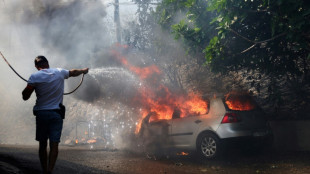 Marseille wildfire that closed airport 'receding'
Marseille wildfire that closed airport 'receding'
-
Demna to bow out at Balenciaga with farewell Paris fashion show
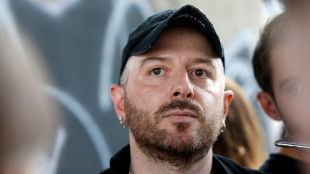
-
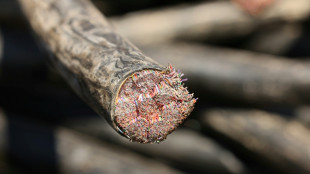 Markets mixed as Trump flags fresh tariffs, eyes on trade talks
Markets mixed as Trump flags fresh tariffs, eyes on trade talks
-
Mattel launches Barbie doll with diabetes

-
 Cricket's Indian Premier League value surges to $18.5 bn: report
Cricket's Indian Premier League value surges to $18.5 bn: report
-
Dutch art sleuth recovers stolen trove of UNESCO-listed documents
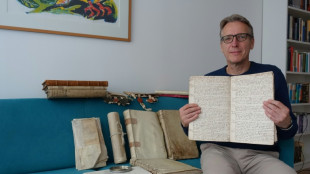
-
 Japan imperial couple visit WWII memorial, hail 'deep friendship' in Mongolia
Japan imperial couple visit WWII memorial, hail 'deep friendship' in Mongolia
-
Exiled Chinese lawyers grieve loss of civil society decade after crackdown
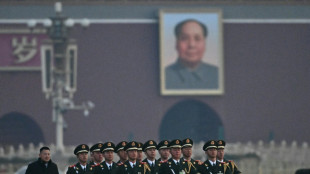
-
 Netanyahu says reaffirmed hostages release, Hamas defeat in Trump talks
Netanyahu says reaffirmed hostages release, Hamas defeat in Trump talks
-
The long slow death of Norway's wild salmon

-
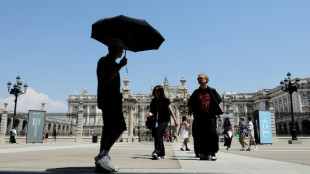 Climate change made European heatwave up to 4C hotter: study
Climate change made European heatwave up to 4C hotter: study
-
Can Kenya attract the outsourcing jobs of the AI future?
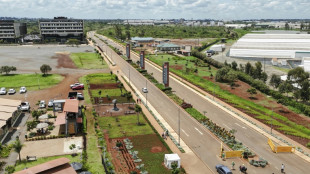
-
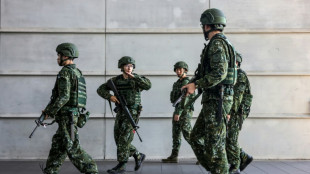 Taiwan kicks off military drills in face of China threat
Taiwan kicks off military drills in face of China threat
-
China's snaps 4-month consumer decline but factory price deflation deepens

-
 China's 'new farmers' learn to livestream in rural revitalisation
China's 'new farmers' learn to livestream in rural revitalisation
-
Asian markets mixed as Trump flags fresh tariffs, eyes on trade talks
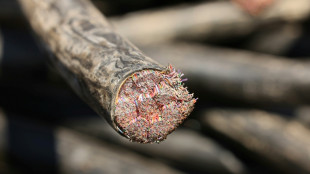
-
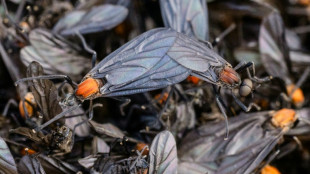 Rotten insects, viral videos and climate change: S.Korea battles 'lovebug' invasion
Rotten insects, viral videos and climate change: S.Korea battles 'lovebug' invasion
-
Bitter pill: Cuba runs low on life-saving medicines
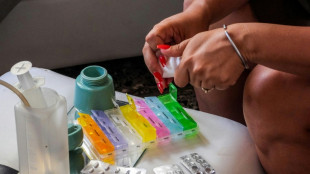
-
 Owen Farrell in line for Lions tour debut against AUNZ XV: reports
Owen Farrell in line for Lions tour debut against AUNZ XV: reports
-
India look to maintain momentum against faltering England in third Test
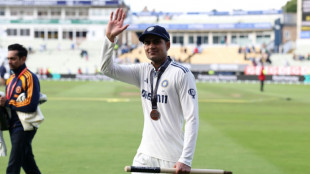
-
 June was hottest on record in western Europe: EU monitor
June was hottest on record in western Europe: EU monitor
-
Luis Enrique ready for 'special' showdown between PSG and Real Madrid
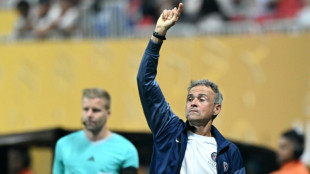

'Remarkable global progress': HIV cases and deaths declining
The number of new HIV infections and deaths has fallen across the world, marking significant progress in the fight against the disease.
But HIV is far from being stamped out, health experts warn ahead of World AIDS Day on Sunday.
- Uneven progress -
During the 2010s, the number of HIV infections across the world declined by a fifth, according to a major study published in The Lancet HIV journal on Tuesday.
Deaths related to HIV, which are generally caused by other diseases during the late stages of AIDS, fell by about 40 percent to below a million a year, the study said.
The decline was mainly driven by improving rates in sub-Saharan Africa, which is by far the hardest-hit region in the global epidemic.
However infections did not go down everywhere. Other regions, such as Eastern Europe and the Middle East, saw HIV numbers increase.
And the world remains far from the United Nations target of virtually eradicating AIDS-related deaths by 2030, the researchers said.
"The world has made remarkable global progress to significantly reduce the number of new HIV infections," said lead study author Hmwe Kyu of the US-based Institute For Health Metrics and Evaluation.
"More than a million people acquire a new HIV infection each year and, of the 40 million people living with HIV, a quarter are not receiving treatment," she said in a statement.
- Effective tools -
Preventative treatments called Pre-Exposure Prophylaxis (PrEP) have proven to be a powerful tool in the fight against HIV.
These daily pills reduce the risk of getting HIV from sex by around 99 percent.
They have helped drive down HIV rates in many countries. In some, such as France, health authorities are urging PrEP to be made more available to more people, rather than just men who have sex with men.
"It is something that can be used by anyone who needs it at some point in their sexual life," French infectious disease specialist Pierre Delobel told a press conference.
For people who have been infected with HIV, antiretroviral therapy can reduce the amount of the virus in their blood to undetectable levels.
An undetectable viral load means that there is less than a one percent chance that breastfeeding mothers pass HIV onto their babies, according to the US Centers for Disease Control and Prevention.
- New drug raises hopes -
These tools have worked well in wealthier countries but the high costs have meant that poorer countries -- such as in Africa -- have often been left behind.
There are fears that this history could repeat for a new drug that has been hailed as a potential game-changer in the battle against HIV.
Early trials have found that the antiretroviral treatment lenacapavir is 100 percent effective in preventing HIV infection. And it only needs to be injected twice a year, making the drug far easier to administer than current regimens requiring daily pills.
US pharmaceutical giant Gilead has been charging around $40,000 per person per a year for the treatment in several countries.
But researchers have estimated the drug could be made for as little as $40, calling on Gilead to allow for cheaper access in hard-hit nations.
Last month, Gilead announced it had signed licensing deals with six generic drugmakers to produce and sell lenacapavir in lower-income countries.
While experts largely welcomed the move, some noted that millions of people with HIV live in countries not included in the deal.
The twice-yearly injection is also hoped to help get around another problem for administering HIV drugs -- the stigma that comes along with having the disease.
- What about a vaccine? -
Despite decades of effort, a vaccine for HIV remains elusive.
But the lenacapavir shot is "like having a vaccine basically", Andrew Hill, a researcher at the UK's Liverpool University, told AFP earlier this year.
A handful of patients have also been effectively cured of HIV.
But these cures happen only after a patient endures a brutal stem cell transplant for their leukaemia, so is not an option for almost all people living with HIV.
F.Dubois--AMWN
